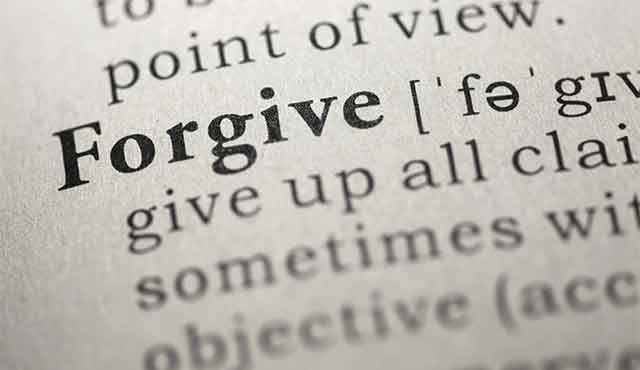Forgiveness is tricky.
For example, somewhere in this world is a former acquaintance of mine who once wronged me deeply and who, for quite a number of years, I would joyfully have fed into a wood chipper. A momentary thought of him would cause my stomach to clench, my teeth to set and my fantasies to run amok. The tamer scenarios featured piranha, flame throwers and enraged gorillas.
Forgiveness? Not a chance.
Not until I realized that, somewhere in this world, my tormentor probably had forgotten long ago that I even existed and was likely enjoying a nice round of golf instead of being tortured in debtor’s prison. The only one with the rising blood pressure and head full of evil thoughts was me. What I wanted was revenge, and knowing that I was never going to get it was maddeningly frustrating.
But, as Paul Newman said in “The Sting,” revenge is for suckers. It’s depressing and unsatisfying. It brings out the worst in anyone’s nature and utterly obliterates any constructive or benign impulse. It is the self-consuming red-eyed monster of our lives.
Which is where forgiveness comes in. Forgiveness pours water on the sputtering fuse. It cuts the blue wire on the bomb. It makes it possible to step away from the old incident, regard it dispassionately and strip it of its power.
But, for many of us, forgiveness must be learned. In a society that so often celebrates and rewards unyielding, uncompromising exercises of power and lionizes the person who tolerates no trespasses from anyone, for any reason, a forgiving heart can be seen as a fatal weakness, a chink in the armor. “Stand your ground” and “stand and fight” have mutated from slogans to philosophies. At their best, they sow division. At their worst, they get people killed.
No one would have called Jesus weak, but there has never been a better model of forgiveness. To forgive and be forgiven is breathtakingly liberating, and do we ever feel stronger than when we feel that we have been set free, relieved of a burden and sent on our way lighter, healthier and better?
Is this not how we feel after making a good confession as part of the Sacrament of Reconciliation? As children or adults, most of us have experienced a slight case of the butterflies when approaching the confessional but do we not feel more relieved and buoyant—and understood—when we have visited a good confessor?
“My impression is that most priests are more compassionate in the confessional than they are in anyplace else in their lives,” says Father Gordon Moreland, S.J. This is very good news for reluctant penitents during Lent who long to lay down their burdens of revenge, confusion and guilt and step out of the shadows and into the light, where they belong.
Make time this Saturday. Feel better. There’s really no trick to it at all.

